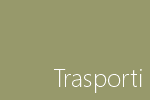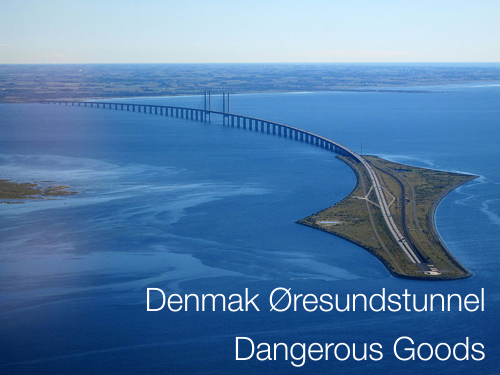| 1 x afterRenderRawModule mod_menu (Temi) (293.11KB) (21.06%) | 53.13ms |
| 1 x afterRenderRawModule mod_menu (Main Menu) (21.23KB) (11.34%) | 28.63ms |
| 1 x afterInitialise (3.43MB) (8.9%) | 22.46ms |
| 1 x afterRender (778.24KB) (8.89%) | 22.44ms |
| 1 x Before Access::getAssetRules (id:8 name:com_content) (441.62KB) (7.53%) | 18.99ms |
| 1 x After Access::preloadPermissions (com_content) (16.82MB) (7.18%) | 18.12ms |
| 1 x afterRenderComponent com_content (85.7KB) (6.07%) | 15.31ms |
| 1 x beforeRenderRawModule mod_login (Accedi all'area riservata) (1.75MB) (4.74%) | 11.96ms |
| 1 x afterRenderRawModule mod_menu (Documenti Abbonati) (179.28KB) (2.43%) | 6.13ms |
| 1 x afterRenderRawModule mod_menu (Top Menu) (31.08KB) (2.43%) | 6.13ms |
| 1 x afterRenderRawModule mod_menu (Policies) (23.48KB) (1.62%) | 4.08ms |
| 1 x afterLoad (84.27KB) (1.47%) | 3.71ms |
| 1 x beforeRenderRawModule mod_menu (Main Menu) (33.91KB) (1.46%) | 3.68ms |
| 1 x afterRenderRawModule mod_menu (Marketing) (21.64KB) (1.43%) | 3.61ms |
| 1 x afterRoute (251.04KB) (1.38%) | 3.47ms |
| 1 x afterRenderRawModule mod_menu (Social) (60.09KB) (1.23%) | 3.12ms |
| 1 x afterRenderRawModule mod_menu (Store) (17.13KB) (1.22%) | 3.08ms |
| 1 x afterRenderRawModule mod_login (Accedi all'area riservata) (80.42KB) (1.09%) | 2.76ms |
| 1 x afterRenderRawModule mod_menu (Media) (14.41KB) (1.05%) | 2.65ms |
| 1 x afterRenderRawModule mod_menu (Info) (10.42KB) (0.86%) | 2.18ms |
| 1 x Before Access::preloadComponents (all components) (41.5KB) (0.81%) | 2.04ms |
| 1 x afterRenderModule mod_custom (Titolo Predefinito) (3.23KB) (0.43%) | 1.09ms |
| 1 x Before Access::getAssetRules (id:1000685 name:com_attachments) (73.97KB) (0.34%) | 861μs |
| 1 x beforeRenderComponent com_content (65.78KB) (0.29%) | 741μs |
| 1 x afterRenderModule mod_menu (Temi) (22.67KB) (0.28%) | 701μs |
| 1 x afterRenderModule mod_menu (Main Menu) (11.27KB) (0.24%) | 609μs |
| 1 x afterRenderRawModule mod_custom (Certifico s.r.l.) (4.22KB) (0.22%) | 562μs |
| 1 x afterRenderModule mod_custom (Certifico s.r.l.) (3.36KB) (0.2%) | 495μs |
| 1 x afterRenderModule mod_menu (Info) (3.05KB) (0.19%) | 492μs |
| 1 x afterRenderModule mod_menu (Media) (4.36KB) (0.19%) | 490μs |
| 1 x afterRenderModule mod_menu (Social) (3.92KB) (0.19%) | 483μs |
| 1 x afterRenderModule mod_menu (Marketing) (3.3KB) (0.19%) | 482μs |
| 1 x afterRenderModule mod_menu (Documenti Abbonati) (4.19KB) (0.19%) | 482μs |
| 1 x afterRenderModule mod_menu (Store) (3.3KB) (0.19%) | 481μs |
| 1 x Before Access::getAssetRules (id:10945 name:com_content.article.4983) (514.65KB) (0.19%) | 479μs |
| 1 x afterRenderModule mod_menu (Policies) (3.3KB) (0.19%) | 477μs |
| 1 x beforeRenderRawModule mod_menu (Social) (41.4KB) (0.18%) | 450μs |
| 1 x afterRenderModule mod_login (Accedi all'area riservata) (5.95KB) (0.14%) | 342μs |
| 1 x After Access::preloadComponents (all components) (115.88KB) (0.12%) | 309μs |
| 1 x afterDispatch (3.06KB) (0.09%) | 238μs |
| 1 x afterRenderModule mod_custom (Regolamento Macchine) (5.08KB) (0.07%) | 175μs |
| 1 x afterRenderRawModule mod_custom (Titolo Predefinito) (1.03KB) (0.06%) | 150μs |
| 1 x After Access::getAssetRules (id:10945 name:com_content.article.4983) (12.67KB) (0.05%) | 137μs |
| 1 x beforeRenderRawModule mod_menu (Top Menu) (2.47KB) (0.05%) | 117μs |
| 1 x afterRenderRawModule mod_custom (Regolamento Macchine) (1.03KB) (0.04%) | 106μs |
| 1 x afterRenderRawModule mod_custom (D. Lgs. 231/2001 - Responsabilità amministrativa enti) (960B) (0.04%) | 97μs |
| 1 x afterRenderRawModule mod_custom (D. Lgs. 196/2003 - Codice protezione dati personali | GDPR) (960B) (0.03%) | 84μs |
| 1 x afterRenderModule mod_menu (Top Menu) (4.11KB) (0.03%) | 84μs |
| 1 x afterRenderRawModule mod_custom (D. Lgs. 81/2008 - TUSSL) (928B) (0.03%) | 83μs |
| 1 x afterRenderRawModule mod_custom (Codice Prevenzione Incendi | RTO II) (928B) (0.03%) | 83μs |
| 1 x afterRenderRawModule mod_custom (TUA | Testo Unico Ambiente) (928B) (0.03%) | 83μs |
| 1 x afterRenderRawModule mod_custom (D. Lgs. 101/2020 - Protezione esposizione radiazioni ionizzanti) (960B) (0.03%) | 83μs |
| 1 x afterRenderRawModule mod_custom (Direttiva macchine e norme armonizzate) (1.05KB) (0.03%) | 83μs |
| 1 x afterRenderRawModule mod_custom (Abbonamento Full) (912B) (0.03%) | 82μs |
| 1 x afterRenderRawModule mod_custom (MEPA) (960B) (0.03%) | 82μs |
| 1 x afterRenderRawModule mod_custom (Certifico ADR) (1.02KB) (0.03%) | 81μs |
| 1 x afterRenderRawModule mod_custom (MOCA - GMP | Consolidato) (1.03KB) (0.03%) | 81μs |
| 1 x afterRenderRawModule mod_custom (DM 21 Marzo 1973 | MOCA IT) (1.03KB) (0.03%) | 81μs |
| 1 x afterRenderRawModule mod_custom (Abbonamento Full Plus) (912B) (0.03%) | 81μs |
| 1 x afterRenderRawModule mod_custom (Codice Unico Sicurezza) (928B) (0.03%) | 81μs |
| 1 x afterRenderRawModule mod_custom (Food Safety book) (1.02KB) (0.03%) | 81μs |
| 1 x afterRenderRawModule mod_custom (TUSSL / Link) (976B) (0.03%) | 80μs |
| 1 x afterRenderRawModule mod_custom (CEM4 || Ultimo aggiornamento) (1.03KB) (0.03%) | 80μs |
| 1 x afterRenderRawModule mod_custom (Store Certifico) (976B) (0.03%) | 80μs |
| 1 x afterRenderRawModule mod_custom (Glossario Certifico HSE) (1.03KB) (0.03%) | 79μs |
| 1 x afterRenderModule mod_custom (MOCA - GMP | Consolidato) (4.02KB) (0.03%) | 71μs |
| 1 x afterRenderModule mod_custom (D. Lgs. 81/2008 - TUSSL) (6.52KB) (0.03%) | 69μs |
| 1 x afterRenderModule mod_custom (D. Lgs. 231/2001 - Responsabilità amministrativa enti) (4.42KB) (0.03%) | 69μs |
| 1 x afterRenderModule mod_custom (Codice Prevenzione Incendi | RTO II) (4.16KB) (0.03%) | 68μs |
| 1 x afterRenderModule mod_custom (TUA | Testo Unico Ambiente) (4.03KB) (0.03%) | 66μs |
| 1 x afterRenderModule mod_custom (D. Lgs. 196/2003 - Codice protezione dati personali | GDPR) (4.44KB) (0.03%) | 66μs |
| 1 x afterRenderModule mod_custom (Abbonamento Full) (4.89KB) (0.03%) | 66μs |
| 1 x afterRenderModule mod_custom (Glossario Certifico HSE) (3.77KB) (0.03%) | 65μs |
| 1 x afterRenderModule mod_custom (D. Lgs. 101/2020 - Protezione esposizione radiazioni ionizzanti) (4.44KB) (0.03%) | 64μs |
| 1 x afterRenderModule mod_custom (TUSSL / Link) (3.64KB) (0.03%) | 64μs |
| 1 x afterRenderModule mod_custom (Certifico ADR) (3.89KB) (0.03%) | 64μs |
| 1 x afterRenderModule mod_custom (Codice Unico Sicurezza) (4.02KB) (0.03%) | 64μs |
| 1 x afterRenderModule mod_custom (DM 21 Marzo 1973 | MOCA IT) (4.03KB) (0.02%) | 63μs |
| 1 x afterRenderModule mod_custom (Food Safety book) (4.02KB) (0.02%) | 62μs |
| 1 x afterRenderModule mod_custom (CEM4 || Ultimo aggiornamento) (3.91KB) (0.02%) | 62μs |
| 1 x afterRenderModule mod_custom (Abbonamento Full Plus) (4.14KB) (0.02%) | 62μs |
| 1 x afterRenderModule mod_custom (Store Certifico) (14.58KB) (0.02%) | 62μs |
| 1 x afterRenderModule mod_custom (Direttiva macchine e norme armonizzate) (4.16KB) (0.02%) | 61μs |
| 1 x afterRenderModule mod_custom (MEPA) (3.75KB) (0.02%) | 61μs |
| 1 x beforeRenderRawModule mod_custom (Titolo Predefinito) (2.1KB) (0.02%) | 48μs |
| 1 x After Access::getAssetRules (id:8 name:com_content) (11.51KB) (0.01%) | 36μs |
| 1 x beforeRenderRawModule mod_menu (Policies) (616B) (0.01%) | 28μs |
| 1 x beforeRenderRawModule mod_menu (Documenti Abbonati) (1.96KB) (0.01%) | 25μs |
| 1 x beforeRenderRawModule mod_custom (Certifico s.r.l.) (2.29KB) (0.01%) | 24μs |
| 1 x beforeRenderRawModule mod_menu (Info) (440B) (0.01%) | 23μs |
| 1 x beforeRenderRawModule mod_menu (Temi) (904B) (0.01%) | 22μs |
| 1 x After Access::getAssetRules (id:1000685 name:com_attachments) (10.59KB) (0.01%) | 21μs |
| 1 x Before Access::getAssetRules (id:1 name:root.1) (760B) (0.01%) | 13μs |
| 1 x beforeRenderRawModule mod_menu (Marketing) (896B) (0%) | 10μs |
| 1 x Before Access::preloadPermissions (com_content) (1.51KB) (0%) | 9μs |
| 1 x beforeRenderRawModule mod_menu (Media) (912B) (0%) | 9μs |
| 1 x beforeRenderRawModule mod_menu (Store) (912B) (0%) | 9μs |
| 1 x beforeRenderRawModule mod_custom (Regolamento Macchine) (2.55KB) (0%) | 8μs |
| 1 x beforeRenderRawModule mod_custom (D. Lgs. 81/2008 - TUSSL) (512B) (0%) | 7μs |
| 1 x beforeRenderRawModule mod_custom (D. Lgs. 196/2003 - Codice protezione dati personali | GDPR) (2.22KB) (0%) | 6μs |
| 1 x beforeRenderRawModule mod_custom (Codice Prevenzione Incendi | RTO II) (1.75KB) (0%) | 5μs |
| 1 x beforeRenderRawModule mod_custom (TUA | Testo Unico Ambiente) (1.38KB) (0%) | 5μs |
| 1 x beforeRenderRawModule mod_custom (TUSSL / Link) (1.48KB) (0%) | 5μs |
| 1 x beforeRenderRawModule mod_custom (Glossario Certifico HSE) (2.38KB) (0%) | 5μs |
| 1 x beforeRenderRawModule mod_custom (D. Lgs. 231/2001 - Responsabilità amministrativa enti) (2.09KB) (0%) | 5μs |
| 1 x beforeRenderRawModule mod_custom (D. Lgs. 101/2020 - Protezione esposizione radiazioni ionizzanti) (1.28KB) (0%) | 5μs |
| 1 x beforeRenderRawModule mod_custom (Direttiva macchine e norme armonizzate) (2.73KB) (0%) | 5μs |
| 1 x beforeRenderRawModule mod_custom (Certifico ADR) (2.77KB) (0%) | 5μs |
| 1 x beforeRenderRawModule mod_custom (MOCA - GMP | Consolidato) (2.5KB) (0%) | 5μs |
| 1 x beforeRenderRawModule mod_custom (Codice Unico Sicurezza) (2.25KB) (0%) | 5μs |
| 1 x beforeRenderRawModule mod_custom (DM 21 Marzo 1973 | MOCA IT) (1.63KB) (0%) | 5μs |
| 1 x beforeRenderRawModule mod_custom (Abbonamento Full) (2.39KB) (0%) | 5μs |
| 1 x beforeRenderRawModule mod_custom (Abbonamento Full Plus) (2.38KB) (0%) | 5μs |
| 1 x beforeRenderRawModule mod_custom (Store Certifico) (3.27KB) (0%) | 5μs |
| 1 x beforeRenderRawModule mod_custom (MEPA) (1.95KB) (0%) | 5μs |
| 1 x beforeRenderModule mod_login (Accedi all'area riservata) (736B) (0%) | 4μs |
| 1 x beforeRenderRawModule mod_custom (CEM4 || Ultimo aggiornamento) (2KB) (0%) | 4μs |
| 1 x beforeRenderRawModule mod_custom (Food Safety book) (1.48KB) (0%) | 4μs |
| 1 x beforeRenderModule mod_menu (Temi) (704B) (0%) | 4μs |
| 1 x beforeRenderModule mod_menu (Main Menu) (704B) (0%) | 3μs |
| 1 x beforeRenderModule mod_menu (Info) (704B) (0%) | 3μs |
| 1 x After Access::getAssetRules (id:1 name:root.1) (1.28KB) (0%) | 3μs |
| 1 x beforeRenderModule mod_menu (Store) (704B) (0%) | 2μs |
| 1 x beforeRenderModule mod_custom (Titolo Predefinito) (720B) (0%) | 2μs |
| 1 x beforeRenderModule mod_menu (Top Menu) (704B) (0%) | 2μs |
| 1 x beforeRenderModule mod_menu (Social) (704B) (0%) | 2μs |
| 1 x beforeRenderModule mod_menu (Media) (704B) (0%) | 2μs |
| 1 x beforeRenderModule mod_menu (Policies) (704B) (0%) | 2μs |
| 1 x beforeRenderModule mod_menu (Marketing) (704B) (0%) | 2μs |
| 1 x beforeRenderModule mod_menu (Documenti Abbonati) (720B) (0%) | 2μs |
| 1 x beforeRenderModule mod_custom (D. Lgs. 196/2003 - Codice protezione dati personali | GDPR) (768B) (0%) | 2μs |
| 1 x beforeRenderModule mod_custom (Codice Unico Sicurezza) (720B) (0%) | 1μs |
| 1 x beforeRenderModule mod_custom (MEPA) (704B) (0%) | 1μs |
| 1 x beforeRenderModule mod_custom (Certifico s.r.l.) (720B) (0%) | 1μs |
| 1 x beforeRenderModule mod_custom (Regolamento Macchine) (720B) (0%) | 1μs |
| 1 x beforeRenderModule mod_custom (D. Lgs. 81/2008 - TUSSL) (720B) (0%) | 1μs |
| 1 x beforeRenderModule mod_custom (Codice Prevenzione Incendi | RTO II) (736B) (0%) | 1μs |
| 1 x beforeRenderModule mod_custom (TUA | Testo Unico Ambiente) (736B) (0%) | 1μs |
| 1 x beforeRenderModule mod_custom (TUSSL / Link) (720B) (0%) | 1μs |
| 1 x beforeRenderModule mod_custom (Glossario Certifico HSE) (720B) (0%) | 1μs |
| 1 x beforeRenderModule mod_custom (D. Lgs. 231/2001 - Responsabilità amministrativa enti) (752B) (0%) | 1μs |
| 1 x beforeRenderModule mod_custom (D. Lgs. 101/2020 - Protezione esposizione radiazioni ionizzanti) (768B) (0%) | 1μs |
| 1 x beforeRenderModule mod_custom (Direttiva macchine e norme armonizzate) (736B) (0%) | 1μs |
| 1 x beforeRenderModule mod_custom (Certifico ADR) (720B) (0%) | 1μs |
| 1 x beforeRenderModule mod_custom (DM 21 Marzo 1973 | MOCA IT) (736B) (0%) | 1μs |
| 1 x beforeRenderModule mod_custom (Abbonamento Full) (720B) (0%) | 1μs |
| 1 x beforeRenderModule mod_custom (Abbonamento Full Plus) (720B) (0%) | 1μs |
| 1 x beforeRenderModule mod_custom (Store Certifico) (720B) (0%) | 1μs |
| 1 x beforeRenderModule mod_custom (Food Safety book) (720B) (0%) | 1μs |
| 1 x beforeRenderModule mod_custom (CEM4 || Ultimo aggiornamento) (736B) (0%) | 0μs |
| 1 x beforeRenderModule mod_custom (MOCA - GMP | Consolidato) (736B) (0%) | 0μs |




















